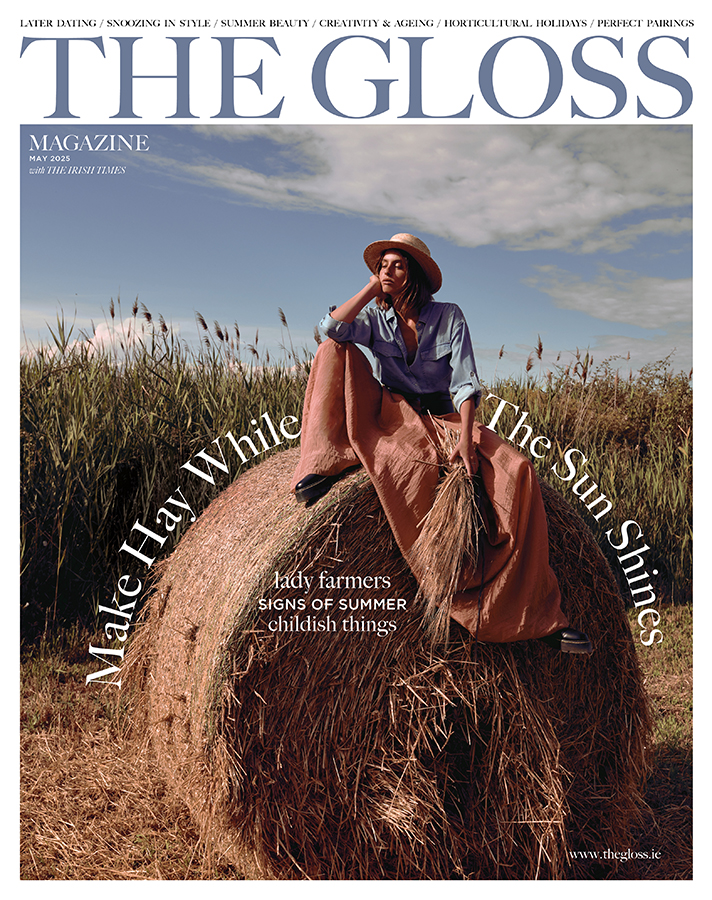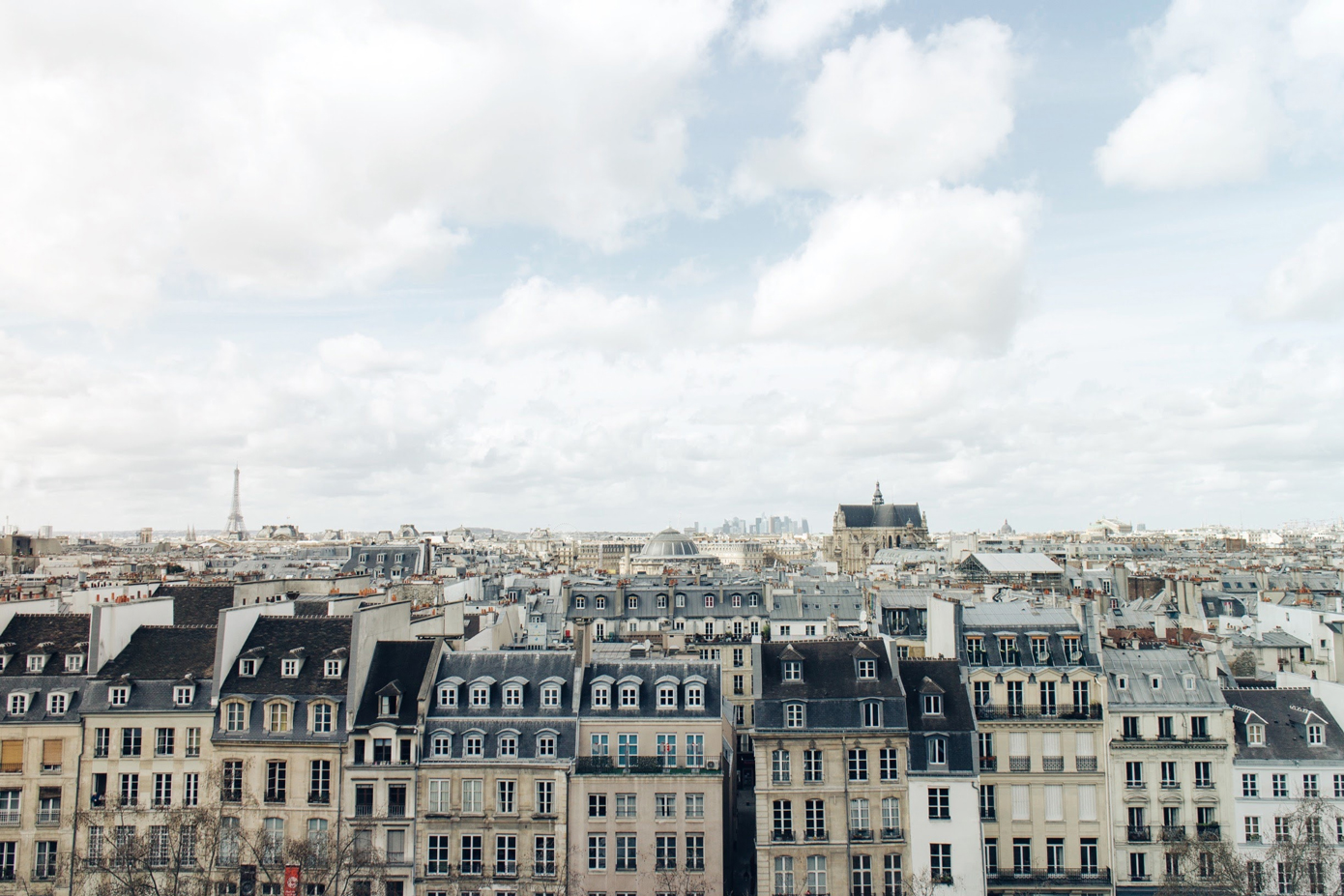Growing up, writer Huma Qureshi straddled two worlds – school and teenage crushes in one; the expectations and unwritten rules of her family’s south Asian social circle in the other. Reconciling the two is sometimes a tightrope act, but she manages it. Until it comes to marriage. Caught between familial duty and her own appetite for adventure, Huma sought refuge in Paris and imagined a future full of possibility … a life on her own terms.
The summer my parents first spoke to me seriously about marriage was the summer between my penultimate and final years at university. We were on holiday in Italy and had caught the train from Venice to stay in Florence for a few days. When we arrived, we stopped at a large, busy gelateria full of ornate mirrors and hundreds of flavours where the servers happened to all be young and handsome, eighteen or nineteen years old, working summer jobs. Out of the blue, my mother exclaimed in Urdu how cute the blond boy serving us was and asked if I agreed. I almost spat my gelato out in shock. We never, ever talked about things like this, which is to say we never, ever talked about boys. I don’t know why I remember this detail, only that it seemed significant and odd given that the next time we sat down in another cafe, just a few hours later, my parents wanted to talk to me quite seriously about getting married.
I think the conversation began with me mentioning that I was interested in studying more after my degree. I had already spent a year abroad in Bordeaux in my third year and I was tempted by the idea of returning to France for a master’s after my fourth year, this time swept up by the romance of living in Paris. But then my parents interrupted and pointed out that since I was going to be graduating in the next year, perhaps it was time to start thinking about meeting some suitable boys instead of planning to go away again. There had been some interest, they said.
‘But I don’t want that. I don’t want to be looked at like that,’ I said. I felt my cheeks burn. I was annoyed and I wasn’t afraid to show it; my mood darkened and I pushed away my plate stubbornly like a child.
‘But this is how it is, in our culture,’ they said, before insisting that they were only asking me to think about it, nothing more just yet. To be fair, they really were only asking me to think about it, but at that moment I felt cornered. I was trying to tell them about my ideas and my plans for what I might do next, but they weren’t listening. As a teenager, I bristled whenever my parents reminded me of ‘our culture’, or told me that I couldn’t do something because it wasn’t ‘in our culture’, because it mostly felt like what they really meant was whatever it was we were talking about wasn’t up for negotiation. ‘Our culture’ was parental shorthand for ‘Don’t even think about it’ or ‘We’re not like other people.’ I had early-twenty-something dreams of living abroad, of maybe even becoming a journalist one day, of writing for a living, though I had no blueprint for any of this. And though marriage wasn’t part of my immediate plans, that is not to say I didn’t have hopes of one day falling in love, no matter how impossible the notion seemed. I didn’t know practically how this would ever happen, but that wasn’t the point. The point was I had dreams, no matter how cliche?d they seemed. But ‘our culture’ brought me back down to earth.
‘Are you serious? Because I’m really not ready for any of this,’ I said.
‘You’re not a little girl any more,’ they said, not unkindly. ‘At some point you will have to settle down.’
I was reminded about something I had read in The Portrait of a Lady, when Isabel found herself stuck with Ralph, having to defend her reasons for daring to turn down Lord Warburton’s proposal of marriage. I looked the parts up as soon as I got home and underlined them furiously: ‘I don’t see what harm there is in my wishing not to tie myself. I don’t want to begin life by marrying. There are other things a woman can do.’ And then also: ‘The other day when I asked her if she wished to marry she said: ‘Not till I’ve seen Europe! I too don’t wish to marry till I’ve seen Europe.’ I decided to try the same tactic.
I had this idea of Paris in my head. I had this image of myself, living high in some pretty little attic room up in the clouds. I pictured myself surrounded by books, maybe even writing one. I imagined walking along the Seine at sunset, entire weekends lost in museums, watching French films in arty cinemas, perhaps even practising my French with some dreamy boy in a bookshop. It sounds like a string of cliche?s now but back then, to me, Paris meant simply that the world was full of possibility that I hadn’t explored yet. I wanted to reach out and hold it all in the palm of my hand. I wanted to run away, only with my parents’ consent.

Meanwhile friends from Warwick were applying for law conversion degrees or graduate jobs and hurtling towards stable futures, the thought of which terrified me almost as much as the idea of getting married. Though I didn’t yet fully know what I wanted, I knew it wasn’t any of that. I wanted an excuse to put everything on hold. I felt an urgency to open my life like a lid, peel it back bit by bit and discover where it might take me. I wanted to be free to make mistakes of my own. I wanted very much to be a writer but I had no idea how to make a living out of that. I thought studying politics in Paris might help me find a job in journalism one day as well as proving to my parents there was a point, a real purpose, to my plan. I worried that if I stayed in England, I’d accidentally slip into some conventional, uninspiring graduate scheme. I imagined my dreams of being a writer would disappear.
But more than that, ever since that conversation in Florence I worried that the closer I came to graduation without a sensible career path plotted out, the more seriously marriage might be expected of me because I hadn’t had the foresight to study something vocational and line up anything else. Girls I’d grown up with who were not much older than me were already being introduced to suitable boys and some of them were getting engaged even before graduation; things moved astonishingly fast in the world of aunties, rishtas and arranged marriages. Some of my favourite cousins, a year or two older than me, with whom I had spent countless carefree childhood summers in Lahore, were already married. I thought that if I could get myself to Paris, it might buy me some time.
What I longed for, more than anything, was to choose what my life would be like. Paris seemed a good place to perhaps figure some of this out. Somewhere in the back of my mind, I understood that my parents were most likely looking for matches for me and that once I was married, which felt inevitable, I’d never have this chance again.
I had arranged to rent a back room from a wealthy landlady whose vast apartment occupied the entire fifth floor of a grand, elegant Hausmann building in Le Marais overlooking the Seine on Quai Henri IV. She was a petite divorce?e with cropped dark elfin hair and a sharp chin. I only ever knew her as Madame. I saw her apartment once, on the day I arrived. She invited me in while she fished my keys out of a drawer. Her home was breathtaking, filled with art and glass coffee tables, cut flowers and classical music, long and elegant sofas. In the distance I could see the tall traceries of the Eiffel Tower and the heft of Notre-Dame rising through her windows.
My diminutive square room was accessed through a back door in her kitchen. In one corner was a single bed; in another a countertop with a plug-in hotplate, a two-cup kettle and a miniature fridge. In the other corner there was a tiny bathroom behind the sort of lavatory door you’d find on an aeroplane. A desk slotted into a slim alcove, a few shelves above. Opposite, there was a small television on top of a dark wooden cabinet which held a few plates, mugs and a box of tarnished, mismatched cutlery. I could pace the room in four steps. I could stand in front of the hotplate, reach out and touch my bed. For all of this, the rent was ridiculously high. But I didn’t mind. I didn’t even mind the five flights of narrow, steep stairs up and down because this little room was exactly what I wanted. I had at once no space yet all the space in the world. It was perfect.
I spent most of my time outside of university on my own. The hours on my course were long and intense and at times my head hurt from the effort of keeping up. When I wasn’t studying, I did small things that pleased me. I spent a lot of time browsing in bookshops. I found a little cinema in a cobbled side street that I escaped to on Sunday afternoons. I visited the Musée d’Orsay and stood in front of Degas’ painting of the Bellelli family. I discovered a food market in Le Marais and the satisfaction of cook-ng one-pot meals on my single hotplate. I window-shopped for beautiful clothes in boutiques that took my breath away.
Perhaps it sounds as if I didn’t make the most of Paris. But in my mind, I did. I had only wanted something for myself. Walking home from university in the breath of the cold and the dark, crossing the Pont de l’Archevêché under the creeping shadow of Notre-Dame, I felt something close to exhilarating. There was something thrilling in being alone in these unaccountable moments. I had this feeling that there was something bigger out there. Maybe I could be somebody, on my own.
Sciences Po had a journalism school and was encouraging current postgraduates to apply. I felt the good luck of one door opening after another. The timing couldn’t have been better, I thought, as I filled my application out.
How We Met, A Memoir of Love and Other Misadventures, Elliott & Thompson, £9.99 is out this week.
LOVETHEGLOSS.IE?
Sign up to our MAILING LIST now for a roundup of the latest fashion, beauty, interiors and entertaining news from THE GLOSS MAGAZINE’s daily dispatches.






